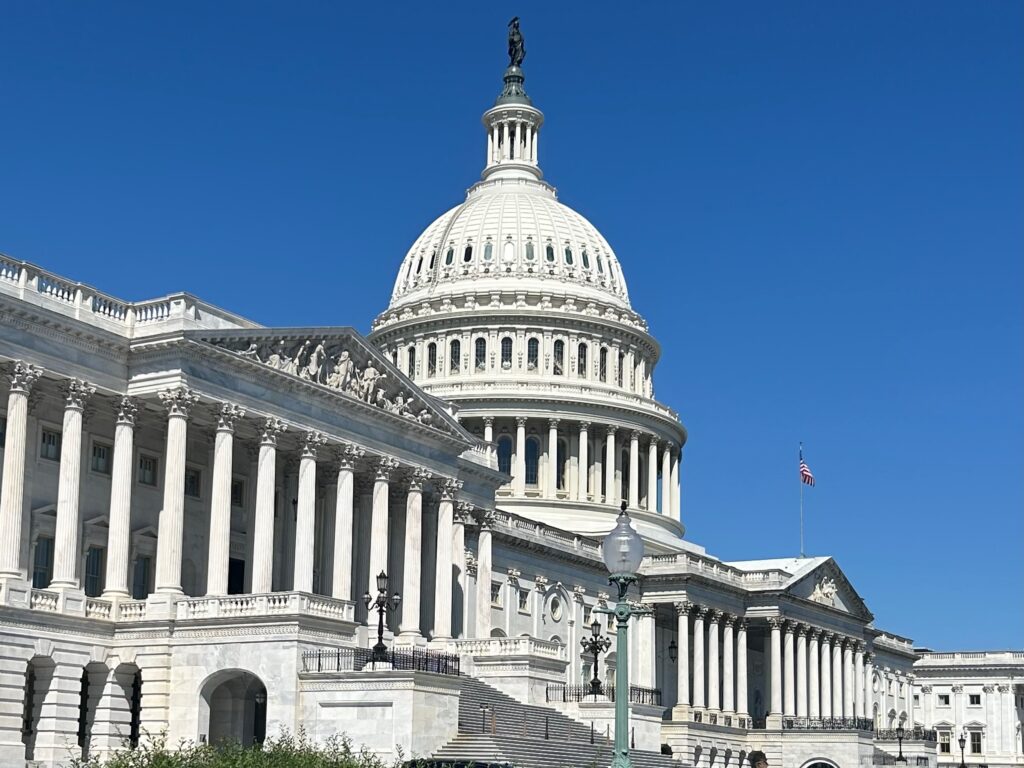New Congress Takes Office Tomorrow — What This Means for Voting Rights

The newly-elected 119th Congress will be sworn in Friday and the GOP — which has repeatedly targeted voting rights — is set to control both chambers for the first time since 2019.
Republicans will retain their majority in the House of Representatives, albeit with a smaller margin — 219 Republicans and 215 Democrats. This is the tightest margin in nearly a century. For reference, a party needs 218 seats to control the House.
President-elect Donald Trump endorsed House Majority Leader Mike Johnson (R-La.) to continue to lead the House, and he likely will if a proposed rules package passes that would make it harder for members to oust the speaker.
Last year, Johnson spearheaded the effort to pass the Safeguard American Voter Eligibility (SAVE) Act — a nationwide proof of citizenship law that could disenfranchise numerous eligible voters who don’t have easy access to citizenship documents.
Rep. Brian Steil (R-Wis.), chair of the Committee on House Administration, which handles election-related bills, said Republicans plan to push versions of the SAVE Act and American Confidence in Elections (ACE) Act, according to reporting from the Associated Press.
House Republicans introduced the ACE Act in the summer of 2023, and at the time, Steil said it was “the most conservative election integrity bill to be seriously considered in the House in over 20 years.”
The bill includes multiple anti-voting provisions, including ones that would ban noncitizen voting in federal elections (which is already illegal), require a photo ID to vote in-person and by mail, ban same-day voter registration, prohibit community ballot collection and restrict drop boxes.
The ACE Act never passed the House, but the SAVE Act did and was ultimately stalled in the Democratic-controlled Senate.
On Friday, Democrats will lose their narrow control of the Senate with Republicans set to hold 53 seats in the next session of Congress. Even if a few Republicans break from their party on decisions or are unable to participate in certain votes, incoming Vice President JD Vance can break any ties.
Senate Majority Leader Chuck Schumer (D-N.Y.), who pushed his chamber to confirm 235 of President Joe Biden’s judges over the past four years — surpassing Trump’s first-term total and expanding judicial diversity, will pass the baton to Sen. John Thune (R-S.D.) to lead the chamber.
The Republican-controlled Senate will likely confirm any federal judges Trump appoints once he enters office on Jan. 20. Over the past couple of years, Biden-appointed judges were much more likely to deliver victories for voting rights than judges Trump appointed during his first term.
While there may be attacks on democracy from the right, Democratic members of Congress have repeatedly pledged to protect voting rights, including incoming Sens. Angela Alsobrooks of Maryland and Lisa Blunt Rochester of Delaware. They will also make history as this is the first time that two Black women will serve in the Senate at the same time.
In a statement following the 2024 election, House Minority Leader Hakeem Jeffries (D-N.Y.) promised that in the new Congress and during Trump’s administration, Democrats will “defend voting rights” and “push back whenever necessary against far-right extremism that will hurt the American people.”